Julia Alves & Dayse Barreto, Producer & Production Designer of Cannes Award-Winner 'Crowrã'
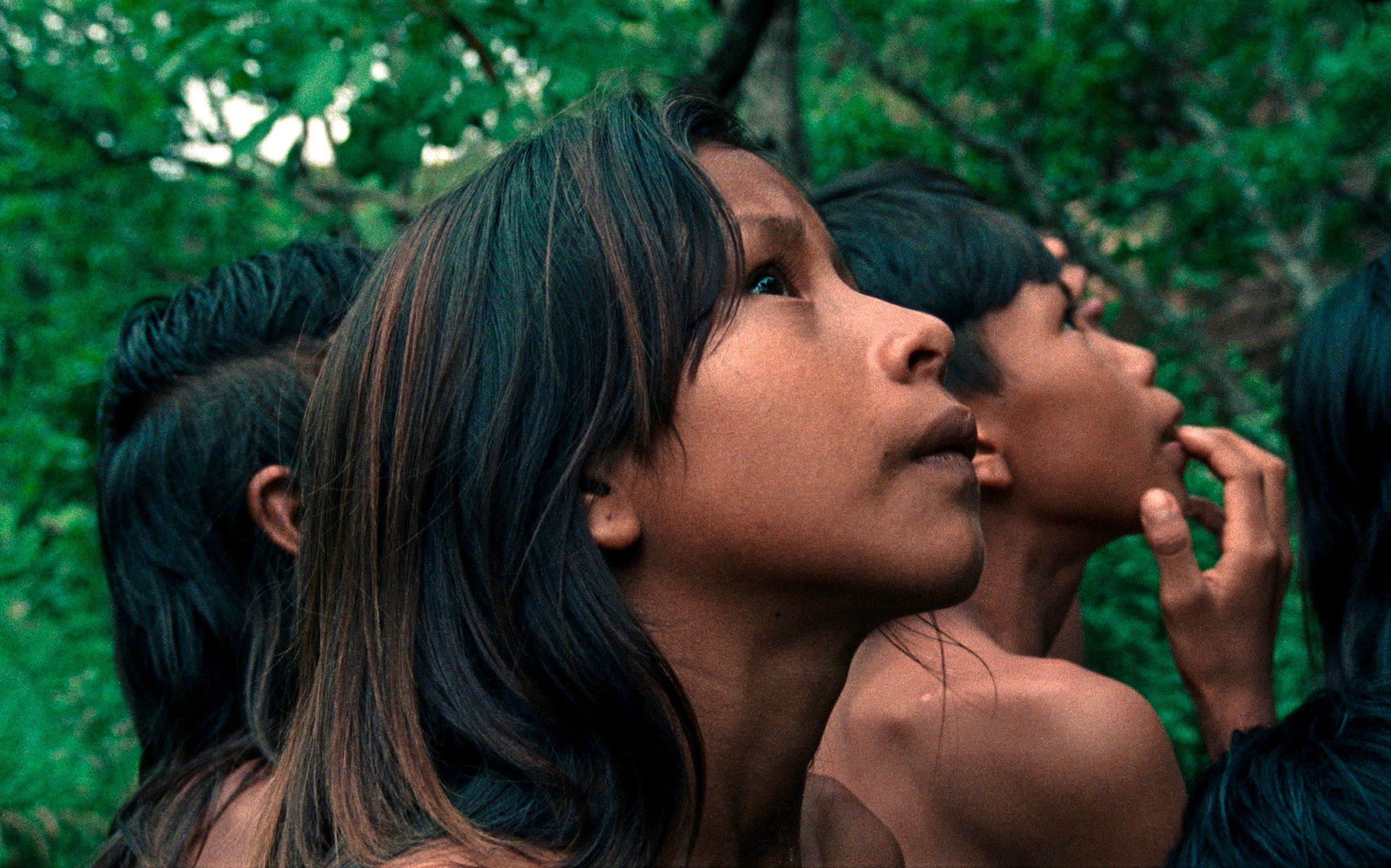
Billed a "sensitive, eye/opening film" by Screen International, "The Buriti Flower" (Crowrã) is directors' João Salaviza and Renée Nader Messora second feature collaboration focused on Indigenous history and culture in Brazil, specifically that of the Krahô people. The film is a hybrid blend of nonfiction and drama made in collaboration with the Krahô community it pivots around, and tells their story, their struggle against the various external influences that threaten their safety and very existence.
The directors' first collaboration, "The Dead and Others", received the Jury Prize in Un Certain Regard in Cannes in 2018, and this year
"The Buriti Flower" followed that success by winning the Ensemble award, for the onscreen cast yes but also including the entire crew and creative team. Two key and award-winning members on that team were Dayse Barreto, the production and costume designer, and Julia Alves, producer, both Berlinale Talents alumni. We caught up with them to hear about the process and experience of making such a unique film.
How did you get involved in the production of “The Buriti Flower”?
Julia: My path crossed with directors João Salaviza and Renée Nader Messora through director and producer Ricardo Alves Jr. I was a co-producer on his first feature film and, in 2019, Ricardo invited me to produce a new project he was working on as a director. In the same period, I had a first meeting with João and Renée, regarding the production of "The Buriti Flower" which was to be led by Ricardo and his company EntreFilmes. I was very excited by the idea of collaborating with all three of them.
Dayse: In December 2019, I was invited by Renée and João talk about this project, a process that had started a few years ago, at the suggestion of Ricardo Alves Jr, who I had worked with on his directorial project "Elon Não Acredita na Morte". From then on, we started researching and meeting to share processes, but we were abruptly interrupted by the pandemic, which forced us adopt a different work dynamic.
What drew you to this project?
Dayse: The possibility of working with a team, especially directors, whose work I admire and respect. In a country whose policies aid the extermination of indigenous peoples, it is necessary to remember the importance of the strength of the collective struggle. Cinema is an important tool both to convey these tragic and epic stories and to raise debates about the past, present and future of people and spaces.
Julia: I already followed João and Renee's work and I was thrilled to be part of their next project. Filming with a small crew and for a long period of time is a method that I find very powerful, and which I’ve worked a lot recently. Also, the directors’ have a strong bond with the Krahô community, and this leads to a unique perspective on storytelling, built together with the Krahôs.
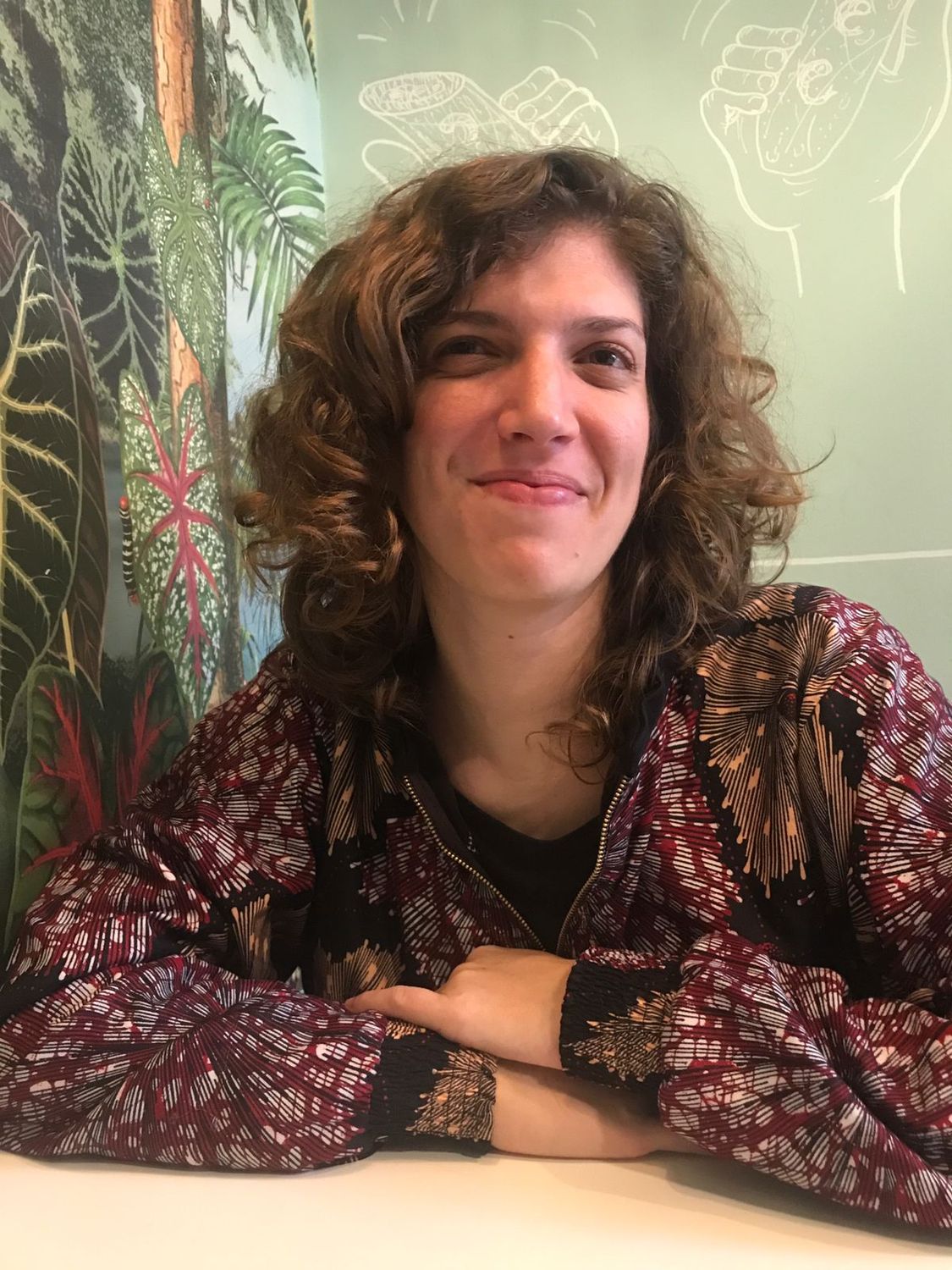
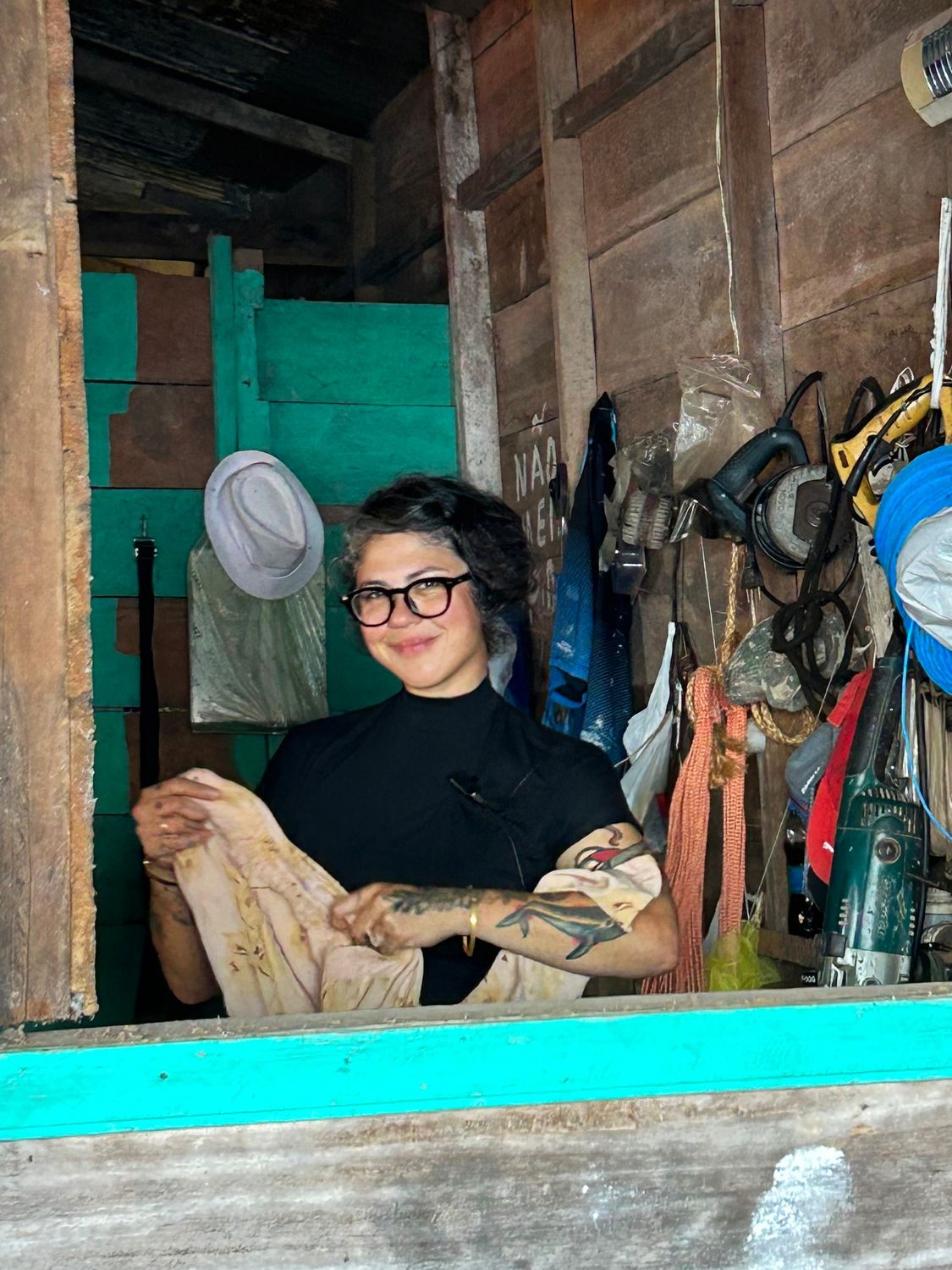
Can you tell us about the production process?
Dayse: When we started, the film didn't have a formal, classic script, but Renee and João had very clear ideas about the consubstantial events of life and the places that emerged in the narrative. We made a drawing of these times and space (since the film has scenes in different times) and we studied the imagery construction of this journey, especially the period objects and costumes. We didn't have time or money to make a mistake or take a false step, even more so after the pandemic started and we need to develop new ways of working. Learning from the structures of a filmmaking process so different from anything I've done during my career was a challenge I'm still processing.
Julia: The film was shot in 16mm throughout 15 months, from October 2020 to March 2022. The screenplay and the shooting plan were created in collaboration with the Krahôs, to take their struggles and their fights to the audiovisual narrative.
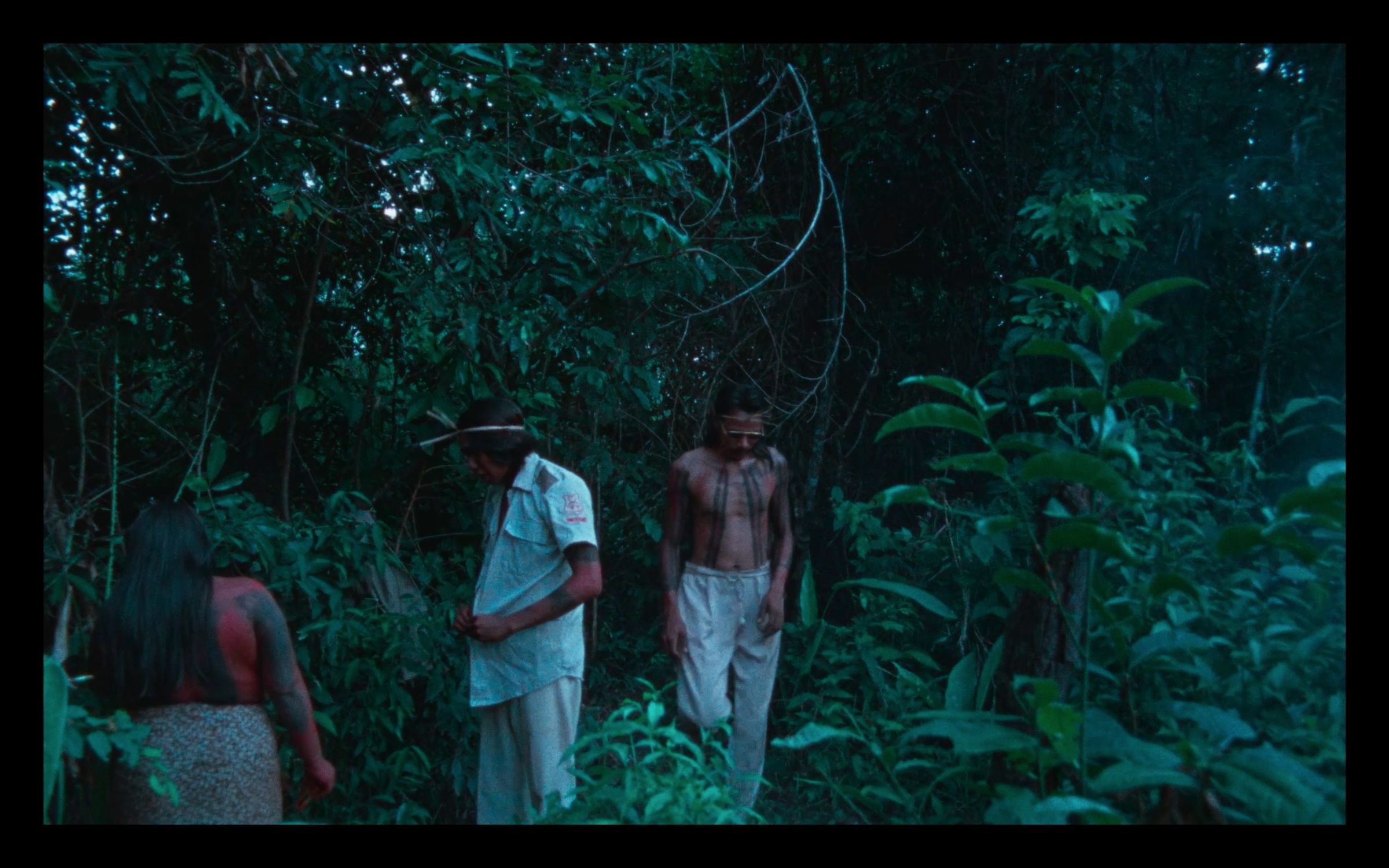
What were the biggest obstacles you faced and how did you overcome them?
Julia: I believe “The Buriti Flower” is a very symbolic film because its production crosses different times in Brazilian cultural and political landscape. The film is a Portugal-Brazil official coproduction and we had the support of the bilateral coproduction fund, which was discontinued in 2019. We suffered the impact of cultural policies dismantling, we shot during the pandemic, and we had to deal with the consequences of a far-right government. We could overcome it due to a collaborative workflow, where the process was shared between direction, production and the Krahô community.
Dayse: We were in different cities, in the midst of the chaos of individual and collective survival during the pandemic, so we strategized to focus on the main scenes that sewed the film together and what was really important for us to have at that moment with all the limitations. We thought about colours, textures and the relationship between what we defined and the space itself, how to work with this unspoken information. It was necessary to expand the borders, delimit the work, because the space and the relationship that is created is the territory for these connections, especially in Itacajá, in Aldeia Pedra Branca. This space carries many layers, living layers, that open temporalities and it was in these temporalities that we needed to anchor our research, the fabulation of it, with elements that intersect, connect and oppose each other.
Julia: Due to the pandemic in 2020 and 2021, Dayse’s work became more focused on the period costumes and objects, since she couldn’t travel to the shooting locations. The art direction was developed on set by Ángeles García Frinchaboy and Ilda Patpro Krahô.
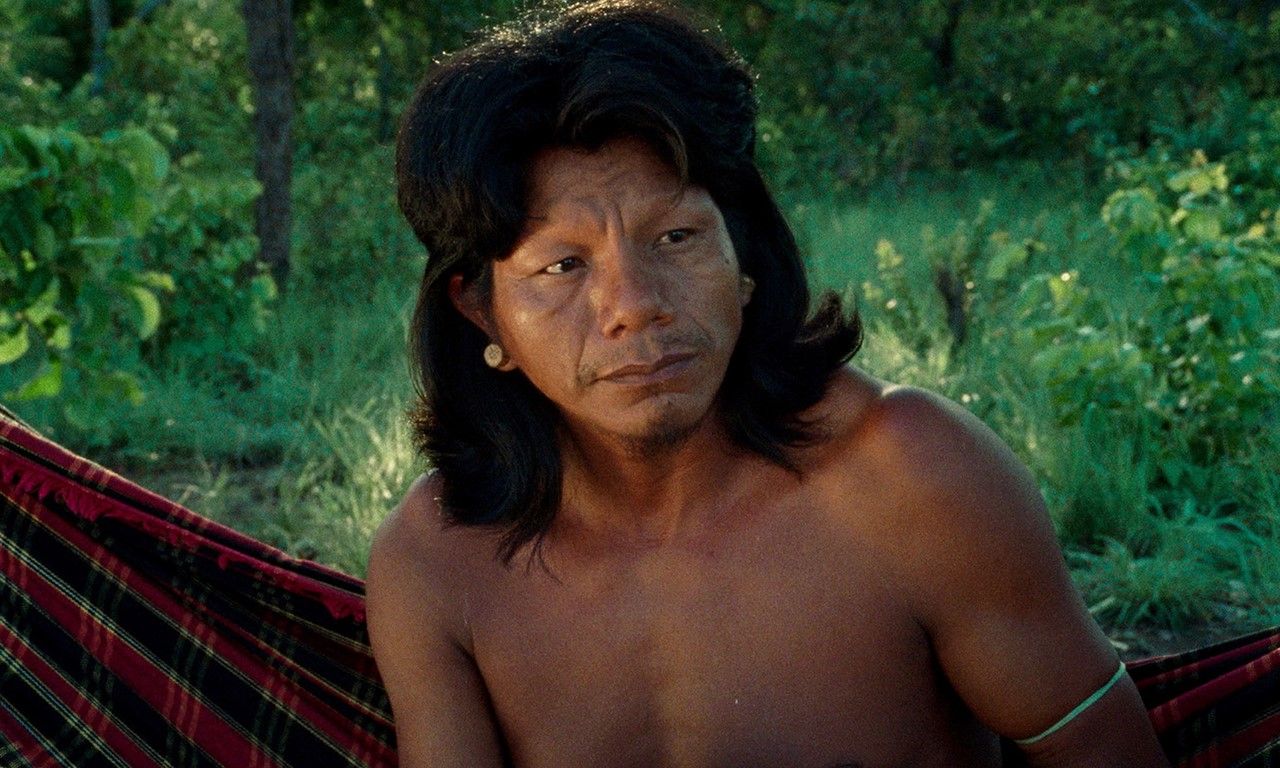
How did the Krahô community receive the crew, and the final film?
Julia: The directors have a close relationship to the Krahô community, so the crew was very well received. And we were happy to have Francisco Hyjnõ, Luzia Cruwakwyk and Henrique Ihjac at the Cannes Festival, representing the Krahôs. The film was exhibited in the communities and we’re now planning the next exhibitions in Brazil.
How was the reaction and aftermath of the Cannes win?
Julia: We were very happy to receive the Ensemble Award! As Renee said, it reminds us of the lessons we learn with the Krahôs every day, about living and existing in community. It’s very special to see the crew and cast honoured with this beautiful prize at Cannes and it’s both an amazing point of arrival and point of departure.
Dayse: I felt very proud and immensely happy to be part of this story, not only because it is a film by two directors who are very consistent and always bring with them the kind of greatness of someone who still sees remnants of humanity in the world, but also because it brought the debate about the temporal frame (a legal thesis that advocates a change in the policy of demarcation of indigenous lands in Brazil) to a national level.
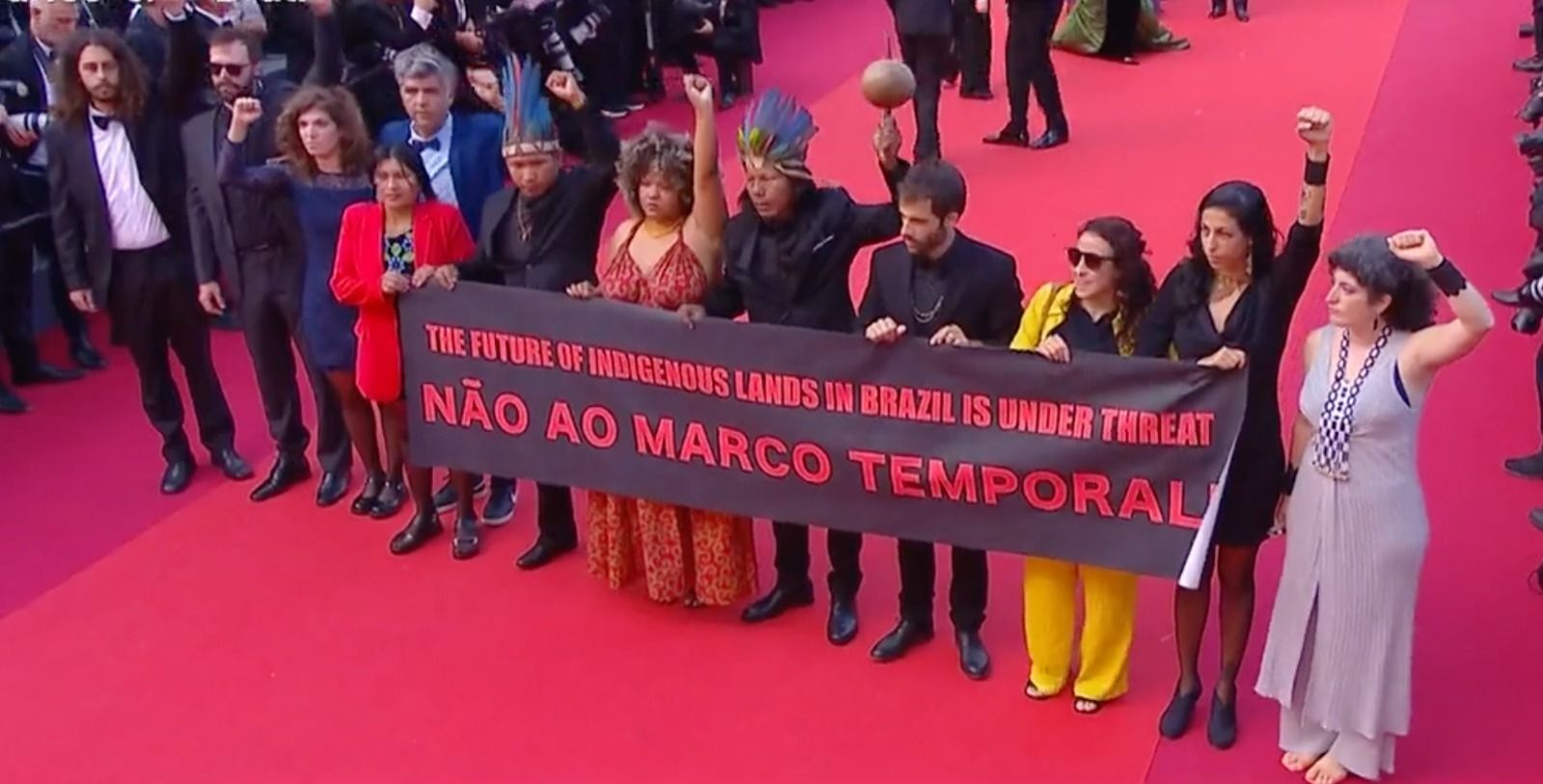
Did you make the connection that you had both attended Berlinale Talents?
Julia: I have known Dayse for many years and we worked together in a short film (directed by Diogo Hayashi, also a Berlinale Talents alumni), many years ago. After that we had never had the chance to work together again, and even in “The Buriti Flower”, with all the pandemic situations, we basically worked remotely. I’m an admirer of Dayse’s work and I believe she’s one of the big new talents among Brazilian production designers. She has a unique perspective, and she can combine this with a broad experience on how to put it on screen.
Dayse: Júlia and I met and worked together a few years ago, we followed each other's trajectory, so we vibrated together with our achievements. I was very happy when she participated in Berlinale Talents 2019, just as she was very excited when I participated this year because we both know the importance of uniting and sharing knowledge and different practices of making and thinking about cinema with other creatives around the world. I am lucky to work with competent people, with whom I share knowledge of the world and a profound sensitivity.
How was your experience of Berlinale Talents?
Julia: (2019) I really enjoyed the experience of Berlinale Talents! It was very powerful to be in the middle of a diverse group, with so many talented people, from all over the world. I learned a lot about how to navigate the market and how to build alternative methods to the films I want to produce. Also, I had the chance to get very close to very talented women, specially from Latin America and Asia.
Dayse: (2023) It was a different and more challenging experience than anything I've ever lived, in glories and difficulties. I had the opportunity to connect with many people and put into practice the debate about cinema, the past, present and future. In this social engagement, it was possible to expand our intellectual boundaries and this is a difficult process, but extremely necessary. Discovering other ways of making and thinking about cinema, especially when we talk about the global south, is a rare and important knowledge. Berlinale Talents is a living and pulsating space and has provided me with interaction and provocation as a means of discovery.
Dayse Barreto is a production designer, visual artist, scenographer and researcher from Fortaleza/CE/Brazil. She is a member of Production Designers Collective (PDC) and Bra.da (collective of Female Production Designers in Brasil). In cinema, she is the production designer of the feature films The Yellow Night, directed by Ramon Porto Mota (International Film Festival Rotterdam); A Bruddah's Mind, directed by Déo Cardoso (Curitiba Int’l Film Festival); Clenched Fists, directed by Ricardo Pretti, Luiz Pretti, Guto Parente and Pedro Diógenes (Locarno International Film Festival), Life lasts two days, directed by Leonardo Mouramateus (Fid Marseille), The Intrusion, directed by Flora Dias and Juruna Malon, (Berlin International Film Festival), and A Flor do Buriti, directed by Renee Nader and João Salaviza, winner of the Ensemble Prize, at the 2023 Cannes Film Festival. She was also responsible for the production design of the guest projects for the 32nd and 33rd Bienal de São Paulo: The Artificial Humors, directed by Gabriel Abrantes; and The Rehearsal, directed by Tamar Guimarães. In the art department, she worked on films by directors Karim Ainouz, Gabriel Martins, Juliana Rojas, Ricardo Alves Jr, Clarissa Campolina, and Caetano Gotardo.
Julia Alves graduated from ECA-USP and completed her master's degree in Cultural Heritage, Landscapes and Citizenship at Univ. Federal de Viçosa (UFV), where she researched contemporary film production in Mozambique. In 2017, she co-created the production platform SANCHO&PUNTA, through which she produced films such as YESTERDAY THERE WERE STRANGE THINGS IN THE SKY by Bruno Risas (Cinéma du Réel 2020 - Best First Film), THE EMPLOYER AND THE EMPLOYEE, by Uruguayan Manuel Nieto (Cannes Directors' Fortnight 2021) and PRIVATE FOOTAGE, by Janaína Nagata (IDFA 2022 - The Beeld & Geluid Reframe Award). Her most recent works are NEIRUD, by Fernanda Faya (Curitiba IFF 2023 - Best Film), THE DELINQUENTS, by Rodrigo Moreno (Festival de Cannes 2023 - Un Certain Regard), in co-production with Argentina, Chile and Luxemburg, and THE BURITI FLOWER, by Renée Nader Messora and João Salaviza (Festival de Cannes 2023 - Un Certain Regard, Ensemble Award), produced alongside with Ricardo Alves Jr. Since 2019 she collaborates with the Portuguese production company OUBLAUM FILMES, where she participated in films such as WATERS OF PASTAZA, by Inês T. Alves (Berlinale Generation 2022), STRIKING LAND, by Raul Domingues (Berlinale Forum 2022) and THE HUMAN SURGE 3, by Eduardo Williams (Locarno Film Festival 2023). Among her projects in production are WHITE ROSES FALL! by Albertina Carri, in co-production with Argentina and Spain, PAINLESS, by Michael Wahrmann and ALL THAT YOU COULD BE and AMUSEMENT PARK, both by Ricardo Alves Jr. She is a Berlinale Talents 2019 alumni and an EAVE Producers Workshop 2023 participant.